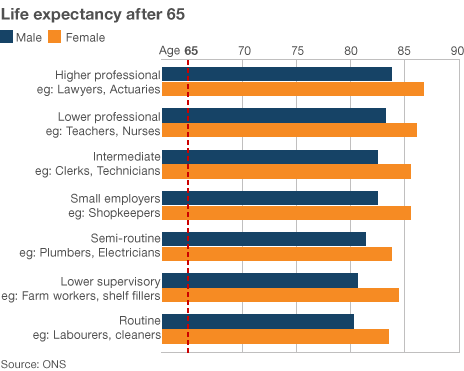Frugalityisthenewblack
Recycles dryer sheets
- Joined
- Dec 14, 2008
- Messages
- 129
BBC News - Do those who retire early live longer?
After reading this article...I am MORE confused about statistics. I would think IMO that people who retire early, away from the stress/demands of work SHOULD theoretically live longer. I'm retiring early based on that assumption.
After reading this article...I am MORE confused about statistics. I would think IMO that people who retire early, away from the stress/demands of work SHOULD theoretically live longer. I'm retiring early based on that assumption.



 No dead lines to meet. Why people want to continue to work past 65 is beyond me
No dead lines to meet. Why people want to continue to work past 65 is beyond me 
 but everyone to their own. I stay extremely busy and some days I get nothing done but who cares. I am in the last phase of my life and I plan to spend it the way I want,
but everyone to their own. I stay extremely busy and some days I get nothing done but who cares. I am in the last phase of my life and I plan to spend it the way I want, None of us know what tomorrow might bring so I suggest to anyone who is thinking about making the move to JUST DO IT. OLD-TRIG
None of us know what tomorrow might bring so I suggest to anyone who is thinking about making the move to JUST DO IT. OLD-TRIG